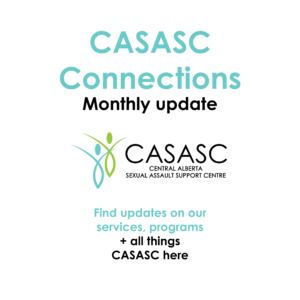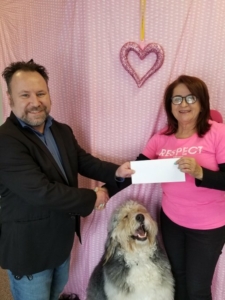The power of words in teen dating relationships
By Kailee Mears
With Valentine’s Day and Family Day behind us, we can reflect on how these holidays bring people closer together. Family Day is a day off for many to spend time with family. Valentine’s Day has grown into a day to celebrate love in many forms, including couples or friends.
What you may not have known is that the month of February was also Teen Dating Violence Awareness Month (TDVAM). TDVAM is meant to raise awareness of the different types of violence teenagers can experience within a dating relationship.
Statistics show that young people between the ages of 15 to 24 have the highest risk of experiencing dating violence.
Dating violence can involve physical abuse like hitting, slapping, pushing or kicking. It can also involve a type of violence called emotional violence.
Emotional violence is the use of words to hurt, intimidate, embarrass or harass a person. It is the most common type of dating violence and often comes before other types of violence. One study suggested that up to 62 per cent of 12 to 18 year old’s have experienced emotional violence while in a dating relationship.
While it may be easy to see the results of physical violence through injuries, it can be difficult to see how words can affect a person emotionally.
As youth grow up, one can expect to hear some version of “don’t let words get the better of you.” While it is important for youth to learn to become resilient, it is important for both youth and adults to recognize when a person’s words are truly harmful, especially when it comes to dating relationships.
One of the first steps you can take is to pay attention when someone is speaking and how their tone makes the youth and those around them, including yourself, feel.
Hearing something like “Why don’t you just shut up?” can make a person feel very small, scared and uncomfortable. Hearing “Oh come on. Everyone is doing it. Just try it once,” could have the effect like they are being pressured into doing something they don’t want to do.
Or even “Why didn’t you text me back? I texted you a lot. What were you doing? Who were you with?” can feel like being controlled by the person saying it – that we cannot do anything without replying to a text message right away or face some sort of punishment. Being independent in a relationship is important. We need to have time to ourselves and with others to maintain our relationships.
If you overhear something that makes you feel off or uncomfortable from the dating partner of a friend, co-worker or youth in your family, it is important to check in with that person. By asking that friend/co-worker/youth how they felt during that conversation and pointing out how you felt may make the youth more aware of how they may have been treated with disrespect. It could give the person a chance to reach out for help if they are uncomfortable with how their partner is speaking to them.
Words can be powerful. It is important for youth and adults to know that they deserve to be spoken to with respect, love and dignity, especially when it comes from a dating partner. If something does not sound right or makes someone feel scared, it is important to say something and seek help.
Kailee Mears is a prevention educator at the Central Alberta Sexual Assault Support Centre.
Article as published in the Red Deer Advocate on March 1, 2022



